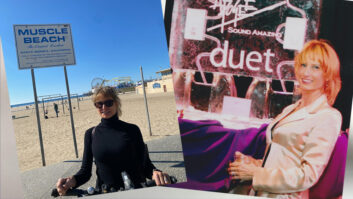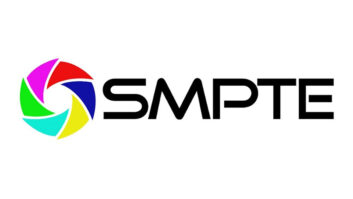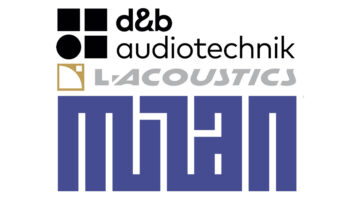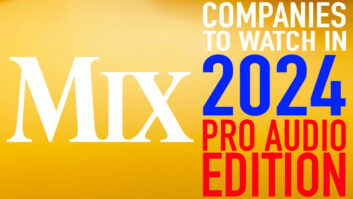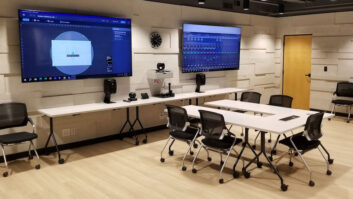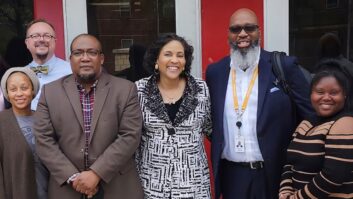One question I hear most often from students who want a career in pro audio is how can they break into the business. As Mr. McGuire in The Graduate might reply: “I want to say one word to you, just one word. Are you listening?”
Network.
Students may think they already know this and, as a result, have joined Facebook, LinkedIn, Google+ and other social networking sites. But that’s not what I’m talking about here. The time-proven way to get into the biz is to mingle with professionals and get to know the scene within which you want to work. Unlike for other careers, it takes more than a good-looking résumé and a well-placed job application to get somewhere in a field as competitive as the music industry.
Of course, talent and a solid skill set are important, but getting the job you want is also about who you know, about meeting the right people, and about being in the right place at the right time—all of those things we consider clichés but are, in fact, a reality.
An important first step can be as easy as joining a professional organization such as the Audio Engineering Society or the Recording Academy, both of which provide opportunities for students to meet audio professionals, often in educational settings. Students may be surprised at how easy it is: Why would someone who has won a Grammy be interested in meeting me? It turns out that the people who take part in these organizations do so in part because they are interested in meeting, mentoring and inspiring future generations of music professionals.
Consequently, it behooves a student to get involved in these kinds of organizations while building their skill set, rather than wait until they finish their certificate or degree program: Extracurricular learning is as important to a well-rounded education as the hours spent in the classroom—perhaps even more so. And there’s no better way to learn the craft than directly from the masters.
Audio Engineering Society
Regular readers of Mix know about the AES and may even be members (or, at the very least, have attended one of its events). To students, however, the name of the organization, alone, can sound intimidating. Nonetheless, they can join the organization as a Student Member for as little as $39 a year. Workshops, listening events and access to papers covering the latest research are just some of the perks of this membership level.
In an email, AES President-elect John Krivit told me that “about one-third of our membership is made up of students, which I believe shows what a young and vibrant society we are. But the real important connectors are the AES Faculty Advisors on each campus. These educators are the ones who encourage their students to have great local events and to make the leap of faith to get themselves to the conventions.” That last part is a take-home message for instructors and students.
GrammyU
The Recording Academy focuses its efforts in several key areas, such as political advocacy for the rights of artists and studio professionals, as well as the development of technical standards through the P&E Wing. For me, one of the most exciting aspects of the organization is its student outreach program, GrammyU.
Among the many opportunities GrammyU membership provides is a chance to attend events designed specifically with students in mind. However, it also opens up opportunities to network with Recording Academy members who span a wide variety of entertainment careers, from engineering, songwriting, and performing to artist management, booking and entertainment law. Students don’t always know where they will end up in this biz, so it’s important for them to see the breadth of opportunities available—many of which they may not have heard of before.
The Recording Academy has made GrammyU membership very attractive with its one-time fee of $50. With that you can attend any of the GrammyU events, as long as you sign up when space is limited. As far as I’m concerned, it is the best $50 students will spend during their education, as long as they take advantage of all that membership offers.
Regional Opportunities
In addition to considering membership in internationally recognized organizations such as AES and GrammyU, there are often local and regional opportunities for networking and professional development.
One of my favorites in the San Francisco Bay Area is the Women’s Audio Mission, a nonprofit organization “dedicated to the advancement of women in music production and the recording arts.” WAM provides a number of educational opportunities ranging from its Girls on the Mic youth program to a variety of events and workshops. WAM also offers SoundChannel, an online curriculum that is accessible internationally.
It’s often through programs like these that students learn what it means to have a career in the music industry—that it’s more than just a job. And it’s equally important that young people witness the joy that the pros get from their career on a daily basis, no matter which slice of it they’re in.
